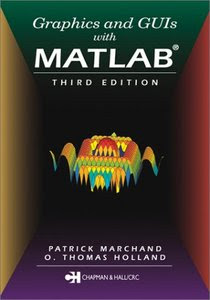
Download Click Here


Simulation is the most important process in development as well as in monitoring . So let me give some basic idea of SIMULATION.Basically SIMULATION is Something which simulates a system or environment in order to predict actual behaviour. Or you can say "Simulation is the imitation of some real thing, state of affairs, or process. The act of simulating something generally entails representing certain key characteristics or behaviours of a selected physical or abstract system."
Simulation is used in many contexts, including the modeling of natural systems or human systems in order to gain insight into their functioning. Other contexts include simulation of technology for performance optimization, safety engineering, testing, training and education. Simulation can be used to show the eventual real effects of alternative conditions and courses of action.Key issues in simulation include acquisition of valid source information about the referent, selection of key characteristics and behaviours, the use of simplifying approximations and assumptions within the simulation, and fidelity and validity of the simulation outcomes.
Historically, simulations used in different fields developed largely independently, but 20th century studies of Systems theory and Cybernetics combined with spreading use of computers across all those fields have led to some unification and a more systematic view of the concept.
Physical simulation refers to simulation in which physical objects are substituted for the real thing . These physical objects are often chosen because they are smaller or cheaper than the actual object or system.
Interactive simulation is a special kind of physical simulation, often referred to as a human in the loop simulation, in which physical simulations include human operators, such as in a flight simulator or a driving simulator.
Human in the loop simulations can include a computer simulation as a so-called synthetic environment
we are living in computer age so we should talk about computer simulation.A computer simulation (or "sim") is an attempt to model a real-life or hypothetical situation on a computer so that it can be studied to see how the system works. By changing variables, predictions may be made about the behaviour of the system.
In Computer science, simulation has some specialized meanings: Alan Turing used the term "simulation" to refer to what happens when a universal machine executes a state transition table (in modern terminology, a computer runs a program) that describes the state transitions, inputs and outputs of a subject discrete-state machine. The computer simulates the subject machine. Accordingly, in theoretical computer science the term simulation is a relation between state transition systems, useful in the study of operational semantics.
Simulators may also be used to interpret fault trees, or test VLSI logic designs before they are constructed. Symbolic simulation uses variables to stand for unknown values.In the field of optimization, simulations of physical processes are often used in conjunction with evolutionary computation to optimize control strategies.
Simulation in education and training
Simulation is often used in the training of civilian and military personnel. This usually occurs when it is prohibitively expensive or simply too dangerous to allow trainees to use the real equipment in the real world. In such situations they will spend time learning valuable lessons in a "safe" virtual environment. Often the convenience is to permit mistakes during training for a safety-critical system. For example, in simSchool teachers practice classroom management and teaching techniques on simulated students, which avoids "learning on the job" that can damage real students.
Training simulations typically come in one of three categories:
• "live" simulation (where real people use simulated (or "dummy") equipment in the real world);
• "virtual" simulation (where real people use simulated equipment in a simulated world, or virtual environment), or
• "constructive" simulation (where simulated people use simulated equipment in a simulated environment). Constructive simulation is often referred to as "wargaming" since it bears some resemblance to table-top war games in which players command armies of soldiers and equipment that move around a board.
Type of models
Active models
Active models that attempt to reproduce living anatomy or physiology are recent developments. The famous “Harvey” mannikin was developed at the University of Miami and is able to recreate many of the physical findings of the cardiology examination, including palpation, auscultation, and electrocardiography.
Interactive models
More recently, interactive models have been developed that respond to actions taken by a student or physician. recently, these simulations were two dimensional computer programs that acted more like a textbook than a patient. Computer simulations have the advantage of allowing a student to make judgements, and also to make errors. The process of iterative learning through assessment, evaluation, decision making, and error correction creates a much stronger learning environment than passive instruction.
Computer simulators
Simulators have been proposed as an ideal tool for assessment of students for clinical skills.
Programmed patients and simulated clinical situations, including mock disaster drills, have been used extensively for education and evaluation. These “lifelike” simulations are expensive, and lack reproducibility. A fully functional "3Di" simulator would be the most specific tool available for teaching and measurement of clinical skills.
Immersive disease state simulations allow a doctor or HCP to experience what a disease actually feels like. Using sensors and transducers symptomatic effects can be delivered to a participant allowing them to experience the patients disease state.
Such a simulator meets the goals of an objective and standardized examination for clinical competence. This system is superior to examinations that use "standard patients" because it permits the quantitative measurement of competence, as well as reproducing the same objective findings.
simulation is really helpful in these areas
City simulators / urban simulation,Classroom of the future,Digital Lifecycle Engineering, technology ,Finance ,Home-built ,Flight ,Marine ,Military ,Robotics,Automobiles,Automation,Civil construction & architecture, large and complex process and monitoring .






Basic Math for Process Control
By Bob Connell
Download Click Here
